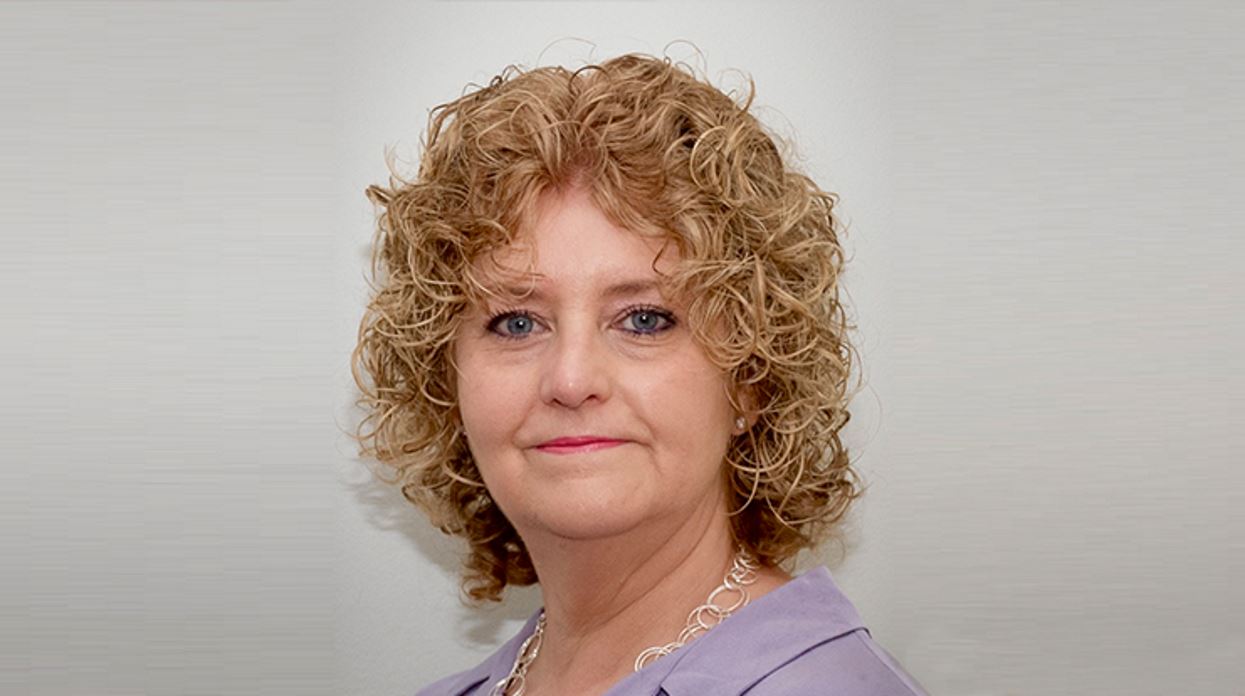
MCPHS Adjunct Faculty Cynthia Spencer on the Advanced Certificate in Mammography

Spencer details her professional experience in mammography, the future of this discipline, the type of professional who would benefit most from obtaining the Advanced Certificate in Mammography, and what makes the MCPHS certificate unique.
What is your own experience in mammography?
I had an opportunity to train on the job in mammography after working as a staff radiologic technologist for 10 years. After becoming registered, I remained at the facility working evenings mainly performing screening mammograms. I decided I wanted to expand my knowledge and skills in the field. I began a new position in a comprehensive breast imaging department in Boston. During my tenure of 15 years at the facility, I learned every aspect of mammography. I performed screening mammograms, diagnostic mammograms, and interventional procedures including MRI biopsies, and I assisted with breast ultrasound, and quality assurance/quality control (QA/QC). Most important, I learned the importance of patient communication, which is the basis of becoming an excellent breast imager. I learned to work in a high-volume atmosphere while keeping the patient my first priority. I continue these skills today as well as act as the Educational Coordinator in my department where I mentor breast imaging students.
Who would benefit most from the Advanced Certificate in Mammography program? How might the certificate help their careers?
The registered technologist interested in becoming certified in mammography must meet certain requirements through the FDA, the state and the accreditation body (ARRT) in order to perform mammography. The MCPHS mammography program and the clinical site provide candidates with knowledge of patient care, positioning skills, breast anatomy, pathology, and the role of the mammographer. After completing the course, the candidate will be ready to sit for the exam and meet all of the requirements of the overseeing bodies, including the structured education and structured experience piece. The demand for certified mammographers is high. According to Zippia, job growth is expected to be 9% through 2028 and showed an unemployment rate of just 1.4% in 2018.
In what ways has mammography improved patient care?
Screening mammography has been proven to decrease mortality by as much as 40% in patients diagnosed with breast cancer. It is described as a non-invasive X-ray to detect breast cancer. Through experience I can tell you that most women find this exam one of the most invasive tests they have undergone. It is up to the mammographer to educate patients and ease their anxieties to obtain a mammogram that meets high quality standards not only in imaging but in patient care as well. We want the patient to return to the department the following year and even pass the word on to friends and family that “it wasn’t that bad.”
What are the current and future career opportunities in this area? Where do you see mammography heading in the future?
There are many opportunities in mammography today. Once experienced, you could become a breast specialist and perform the wide variety of exams performed in the department. You could become certified through the ARRT in breast ultrasound. You could focus on the QA/QC aspect and become the lead QC tech in the department. This position has a great deal of responsibility in the department working with all members of the staff to ensure compliance with the state, FDA (MQSA), and accrediting body (ARRT). Managerial positions are a possibility as well. I see the mammography equipment improving. Right now, Hologic has a corner on mammography equipment providing a tomosynthesis mammogram in 15 slices. Today, tomosynthesis units can provide 25 slices presenting breast tissue in even thinner slices. Because of the improvement in imaging, I foresee mammography expanding in the areas of both screening and diagnostic exams. Contrast-enhanced mammography is on the horizon with a handful of areas performing these exams today. A contrast is injected through the nipple to enhance breast structures and diagnose breast tumors.
What makes this advanced certificate unique compared to other certificates that are offered by other programs in the United States?
MCPHS offers a unique program that is different than others available by offering personalized attention to individuals. Instructors take a personal interest to guide the individual to reach their goals. MCPHS classes are offered online every semester, and students can select course offerings using an a la carte approach. Students may take one course or all three courses depending on individual needs. MCPHS University provides clinical site placement if needed and access to instructors with in-depth knowledge of the field.
Explore our Advanced Certificate in Mammography.
More University News
New Life Sciences Degree Prepares Students to ‘Hit the Ground Running’
The program transforms education into opportunity, one course—and one student—at a time.
MCPHS Strengthens Its Position as a Life Sciences Workforce Leader
A new collaboration with MBI, supported by the Massachusetts Life Sciences Center, will expand access to skills-based QA/QC training.
Research Team Searches for a New Diabetes Treatment
A medicinal chemistry student is exploring the possibility of a new method to treat Type 2 diabetes.
‘Never Settle’: David Gilmore Honored with Nuclear Medicine’s Top Award
The MCPHS program director’s 32-year career has shaped how technologists are trained—and how the profession itself is defined.

